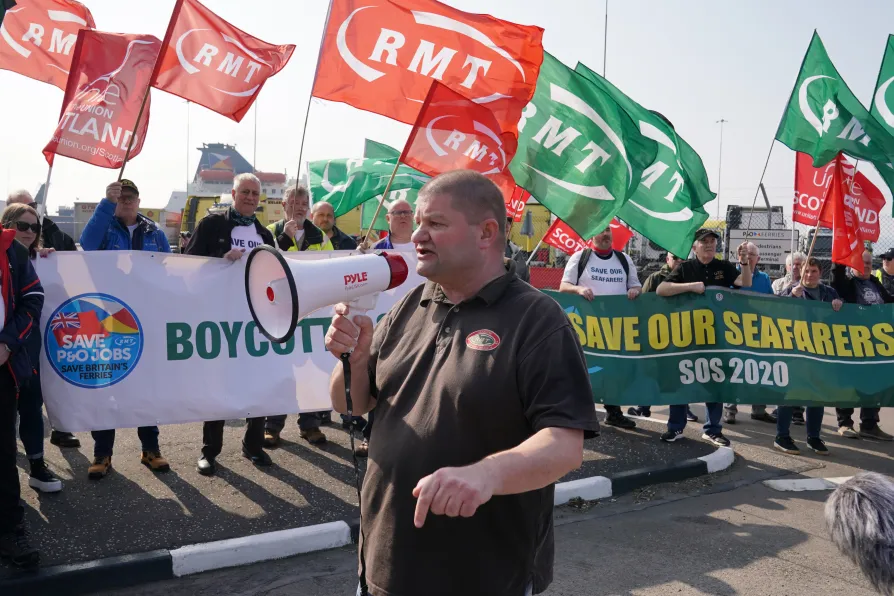A survey circulated by a far-right-linked student group has sparked outrage, with educators, historians and veterans warning that profiling teachers for their political views echoes fascist-era practices. FEDERICA ADRIANI reports

 People take part in a demonstration against the dismissal of P&O workers organised by the RMT union at the terminal in Cairnryan, Dumfries and Galloway, after the ferry giant handed 800 seafarers immediate severance notices, Wednesday March 23, 2022
People take part in a demonstration against the dismissal of P&O workers organised by the RMT union at the terminal in Cairnryan, Dumfries and Galloway, after the ferry giant handed 800 seafarers immediate severance notices, Wednesday March 23, 2022
TODAY the House of Commons select committee on business, energy, innovation and skills (BEIS) begins an inquiry into the P&O Ferries scandal, jointly with the select committee on transport.
This should provide an opportunity for corporate executives to account publicly for their decisions and their alleged failure to comply with various legal standards, most notably the failure to inform and consult the trade unions of their decision to dismiss workers for reasons of redundancy.
But it will also provide an opportunity for the committees to hear from both the government and the company about other matters, not least the implementation and application of the human rights principles by which companies are supposed to be bound.

The Bill addresses some exploitation but leaves trade unions heavily regulated, most workers without collective bargaining coverage, and fails to tackle the balance of power that enables constant mutation of bad practice, write KEITH EWING and LORD JOHN HENDY KC

TONY BURKE says an International Labour Conference next month will try for a new convention to protect often super-exploited workers providing services such as ride-hailing (taxis) such as Uber as well as fast food and package delivery












